
Future-proofing your EU funding strategy for the post-2027 period
Preparing for EU funding for the post-2027 period? Learn what organisations can do now to align with policy shifts, build partnerships and strengthen readiness.
When it comes to funding, many nonprofit organisations across Europe – such as in the social and environmental sectors – assume that EU grants are out of reach. The application process seems complex, the competition intimidating and the rules unclear.
At the same time, every year the European Union invests billions of euros into projects that strengthen communities, tackle climate change and fight inequality. These are causes at the very heart of what many nonprofits do.
So why do so many organisations hold back? Often, it comes down to misconceptions. Let’s look at six of the most common myths about EU funding, and how understanding the facts can open new doors.
Many nonprofits assume that EU grants are reserved for universities, big municipalities or multinational consortia. Small community groups or grassroots initiatives often feel their projects aren’t “big enough” or “important enough” to attract EU funding.
But this is not true. You don’t need a million-euro budget to access EU funding. The EU actively seeks to support smaller scale initiatives, too, that can demonstrate local impact, innovation, and the potential to be transferred or scaled up. Many programmes are particularly accessible for small or grassroots organisations. For example:
In short, EU programmes are not reserved for big organisations, they also target small nonprofits and local partnerships to bring fresh ideas to life. One caveat, though: EU funding for nonprofits is generally aimed at organisations that have already been operating for a few years. For a brand-new nonprofit, winning an EU grant is difficult. Apart from a few exceptions such as small local initiatives like LEADER, most Calls expect applicant organisations to show a minimum level of organisational stability (in terms of know-how and implementation capacity) and financial resources.
What the expert evaluators who score your proposal are looking for is not size, but relevance. Does your project respond to the Call’s or funding programme’s priorities? Does it have a clear structure, achievable outcomes and potential to inspire others? If so, even a small organisation with a modest budget can win EU funding – especially when the results can later be scaled up, replicated, or adapted elsewhere.
Yes, EU applications require detail and structure. But ‘complicated’ doesn’t mean ‘impossible’. In fact, the application forms are designed to break down your project rationale step by step: What is your project about? What results do you expect? Who is involved? Which activities will you carry out?
For a nonprofit, this exercise can be valuable beyond the grant itself. Preparing an application demands you to clarify your objectives, strengthen your partnerships and clearly define the change you want to achieve. Even if you don’t win the grant on your first attempt, you’ll walk away with a stronger project concept, a clearer organisational strategy and transferable skills you can apply across all your fundraising.
It’s true that many EU programmes require partnerships across countries. But not all do. Some programmes also support projects led by a single organisation within one member state. For example, the LIFE programme funds environmental pilot projects run by individual organisations, while EU Structural Funds (such as the European Social Fund or European Regional Development Fund) can finance local initiatives for skills, social inclusion or community development without the need for international partners.
Even when international partnerships are needed, building them is not as daunting as it sounds. Partner search platforms, brokerage events organised by the European Commission or National Contact Points once a Call for Proposal has opened, or your own partner networks or thematic NGO coalitions can help you connect with potential allies.
Partnerships are an opportunity, not a barrier. They allow you to amplify your impact and learn from others facing similar challenges.
It’s true that EU grants are competitive, but that’s also what makes them prestigious. However, what matters most for the evaluators is a project’s relevance, clarity, feasibility and potential impact.
Nonprofits beyond the big players with a well-designed project that clearly addresses the Call’s priorities can score just as highly as a larger institution – as long as they can demonstrate in their application that they have the know-how and capacity needed to implement the project effectively.
And remember: competition exists for every funding source. National and local grants also have limited budgets. The key is to improve your project design and application skills, which increases your chances everywhere.
Winning a grant gives you the resources to bring your project to life. But EU funding is about much more than just than the funding itself – for example, it also brings:
For nonprofits, such as social and environmental organisations, these benefits can be as valuable as the grant itself. They can open doors to new collaborations, donors, and long-term opportunities.
EU funding is a growth opportunity, not just a financial transaction.
It’s true that preparing an EU grant application does take effort. But the potential returns are significant, enabling organisations to scale initiatives, test new ideas or reach communities they couldn’t otherwise.
Equally importantly is a mindset shift: instead of thinking small, your organisation starts planning for bigger, more strategic impact. For social nonprofits, this might mean addressing systemic barriers to inclusion. For environmental groups, it might mean piloting solutions that could be scaled or replicated across Europe.
The effort is an investment. Even if your first proposal isn’t funded, you’ll be better prepared for the next Call, and your organisation will benefit from the clarity gained along the way.
The misconceptions above often discourage exactly the types of organisations the EU most aims to reach. Social and environmental nonprofits are at the heart of Europe’s response to today’s challenges, and EU funding exists to strengthen their work and their impact.
What really matters is a solid project idea, openness to learning, and the courage to take the first step.
Are you planning to submit an EU grant application and need support? Check out my EU grant writing offers.
You don’t want to miss any new blog articles? Sign up for the EU Funding Newsletter.
Ready to take the next step? Discover the compact online course “Kickstart Your EU Funding Journey – Get Ready to Access EU Project Funding”

Author: Astrid Mechel
https://eufundingconsulting.eu
Hello, I am Astrid Mechel and I work (for the most part) with small and medium sized organisations who aim to access EU funding. It is my goal to help discovering suitable EU project funding possibilities and to provide support to submit a high-quality grant application. My main thematic focus is on grants for research and innovation, environmental sustainability as well as on social inclusion and participation.
Read more articles here:

Preparing for EU funding for the post-2027 period? Learn what organisations can do now to align with policy shifts, build partnerships and strengthen readiness.

Applying for EU funding can be a complex and challenging. This article offers 12 practical tips to help you avoid the most common stumbling blocks.

Winning Horizon Europe funding takes more than a great idea – it requires strategy, clear messaging, and a good understanding how proposals are evaluated.
Online Workshop
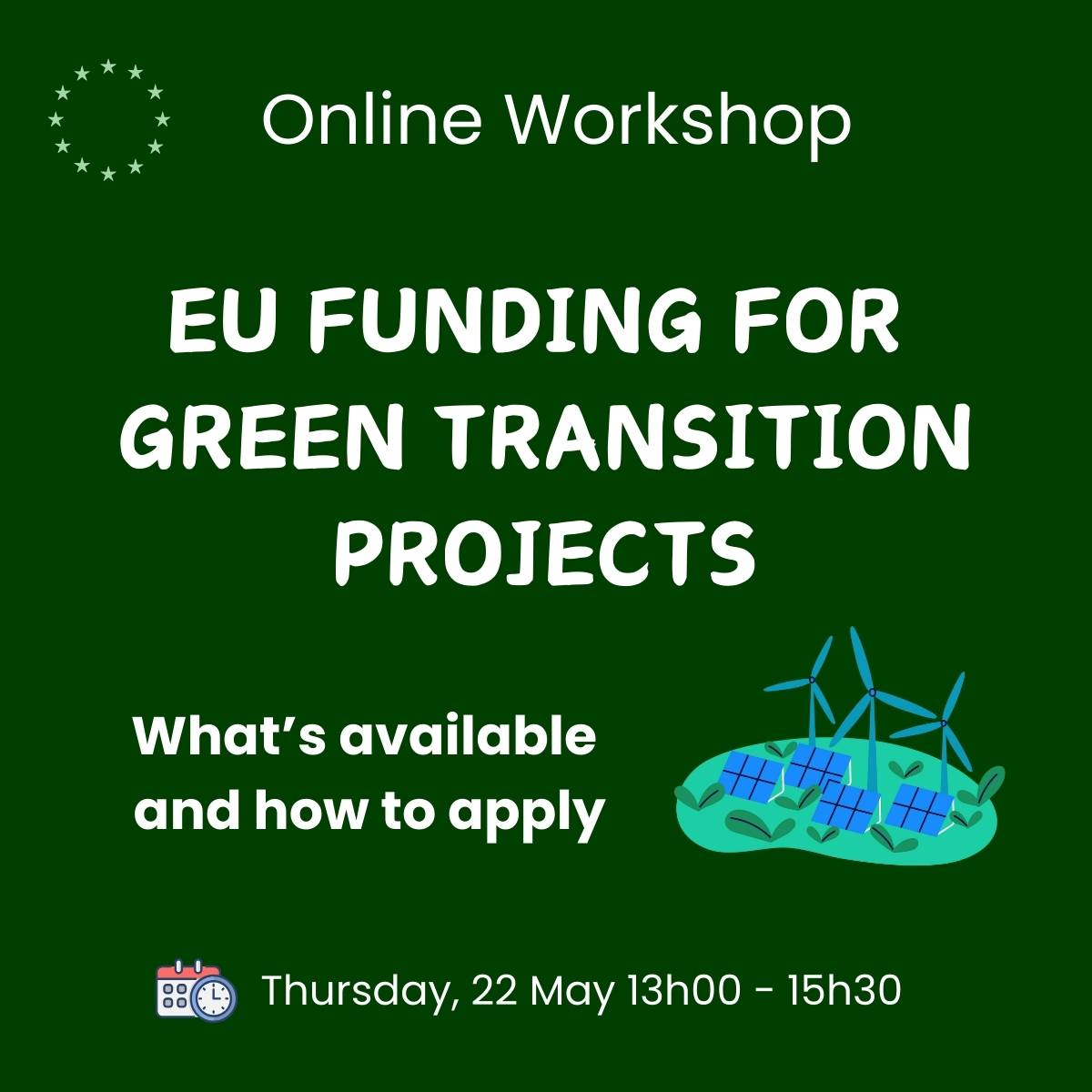
Interactive Live Workshop
On 22 May 2025 from 13h00-15h30
Registrations are closing soon
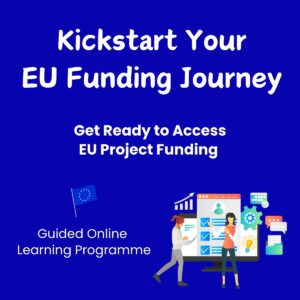
Curious about EU funding and how it could support your next project? Join the new live programme round for a compact and easy-to-follow way to get started with EU funding.
Key Terminologies – Application Guidance
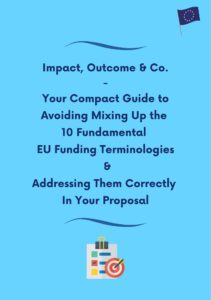
This guidance compares and compare and clarifies the 10 key terminologies within an EU funding application. How should you address them in your proposal, and what kind of information belongs to which one of them?
Online Workshop on 6 November!
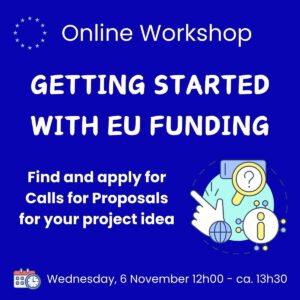
The workshop “Getting Started with EU Funding” is for participants with no or very limited experience in EU funding. Discover what kind of projects the EU is funding, the requirements and how you can apply for funding in your thematic field.
EU Funding Checklist

Do you have a new project idea and are wondering if EU funding could be available for your project?
This checklist will guide you through the most important questions to be considered when applying for EU project grants and includes some further suggestions how you could adapt your concept to be more in line with EU expectations regarding fundability.
Get the brand new upgraded guidance booklet (free offer):
Your compact guide on how they work and how your organisation can apply for funding
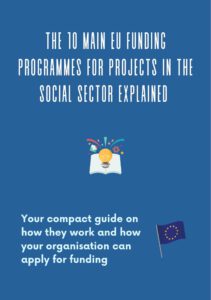
Find out which 10 EU programmes offer grants for projects in the social sector, what the conditions for funding are and how you can apply.
Online Workshop
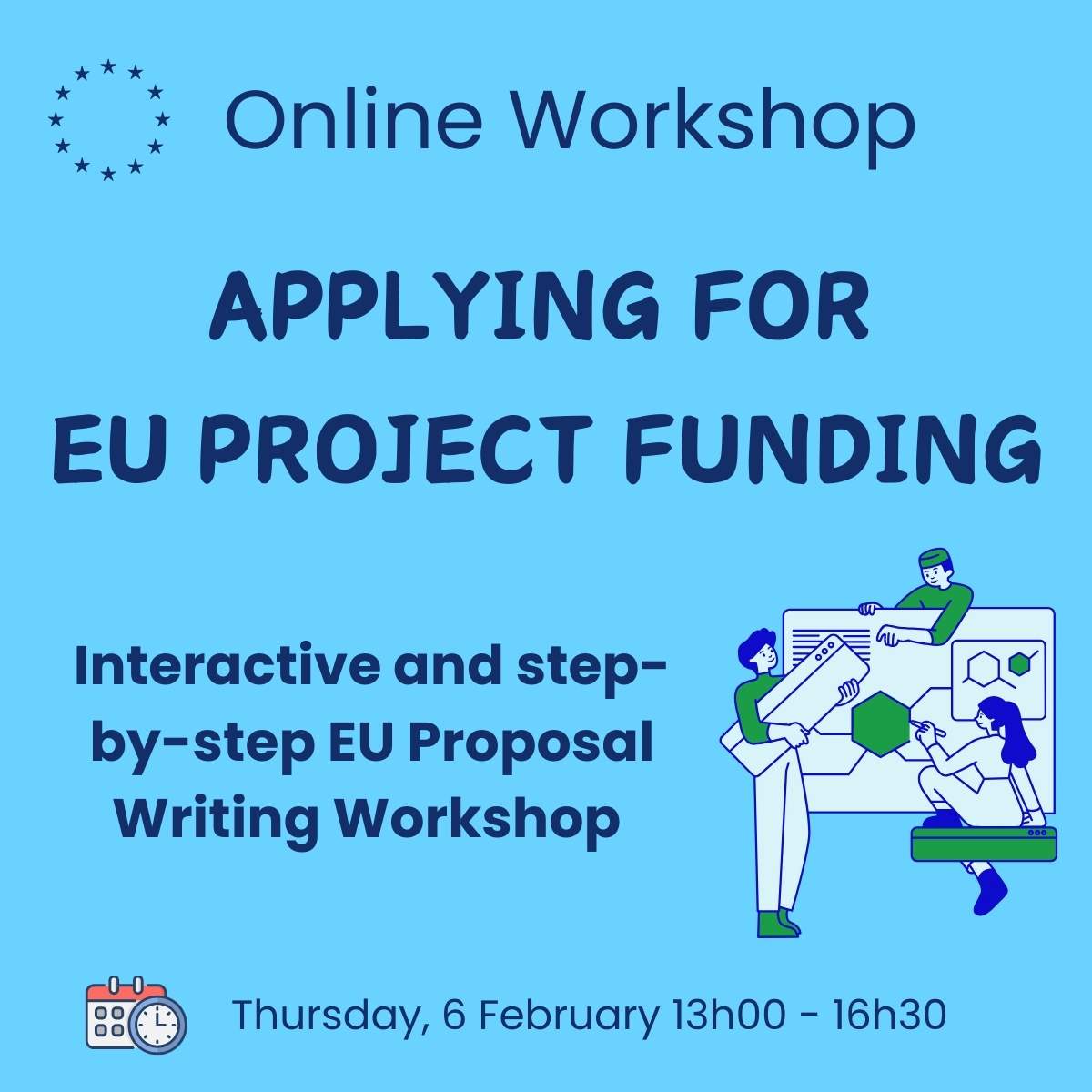
Interactive and step-by-step EU Proposal Writing Workshop
On 6 February 2025 from 13h00-16h30